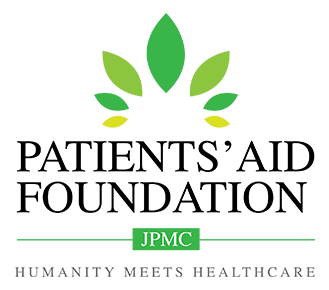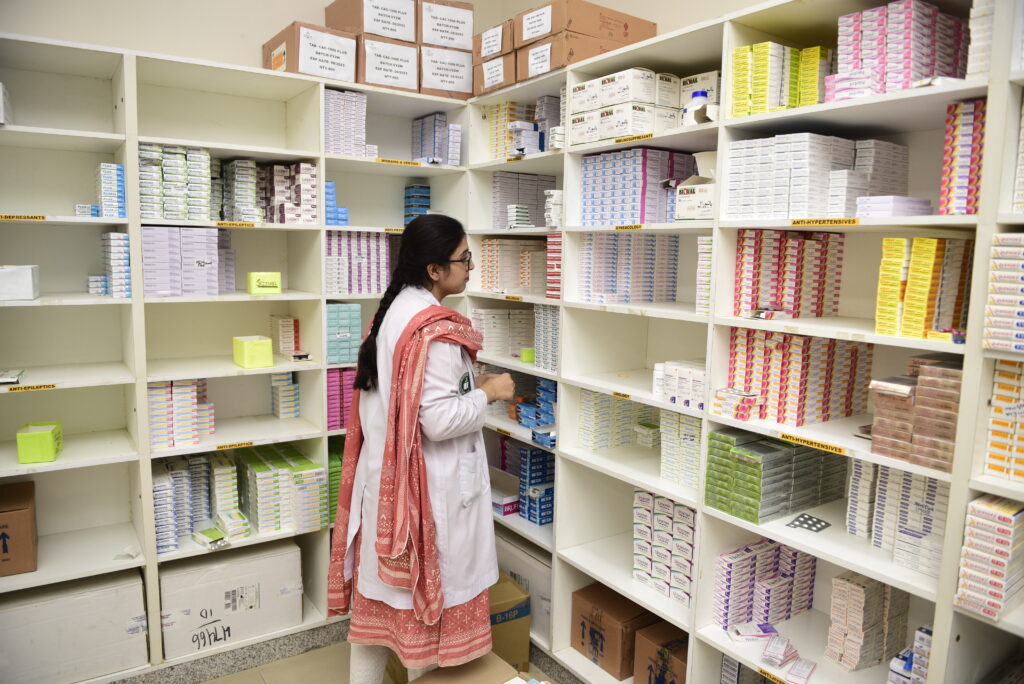World Diabetes Day with Patients’ Aid
Patients’ Aid Healthcare Department Pharmacy Providing Free Medication to Needy Patients
Every two seconds, someone in the world suffers from diabetes or its complications, yet most of us remain unaware of the silent threat it poses. In Pakistan, diabetes is rapidly becoming an unstoppable crisis, quietly claiming lives and overwhelming communities. As the number of sufferers continues to rise, millions of individuals are forced to battle daily to manage their condition.
World Diabetes Day is our opportunity to shine a spotlight on this urgent issue. At JPMC, Patients’ Aid is committed to making a real impact in every aspect of healthcare.
What is Diabetes and How is It Triggered?
Diabetes is a silent crisis that many don’t fully understand until it’s too late. It’s a chronic condition where the body struggles to regulate blood sugar (glucose) levels, either because it doesn’t produce enough insulin or can’t use it effectively. Without proper management, diabetes can lead to devastating complications, such as heart disease, kidney damage, and even blindness.
The diabetes crisis in Pakistan is rapidly escalating, with over 33 million people, more than 26% of the adult population, currently affected, according to a Tribune article. The International Diabetes Federation (IDF) ranks Pakistan at position three worldwide for the number of adults aged 20-79 living with diabetes, following China and India. The diabetes crisis is becoming more severe and requires urgent action.
Types of Diabetes
There are 2 types of Diabetes:
- Type 1 Diabetes: Type 1 diabetes occurs when the body produces no insulin at all. Although less common, it still affects many people in Pakistan and can develop at any age, though it is most commonly diagnosed in children and adolescents.
- Type 2 Diabetes: Type 2 diabetes is more prevalent and dangerous, occurring when the body becomes resistant to insulin. It is closely linked to lifestyle factors such as poor diet, lack of exercise, and stress. In Pakistan, Type 2 diabetes accounts for 90% of the diabetes cases, and its consequences are severe.
The harsh reality is that Pakistan has the highest rate of diabetes-related deaths among those under 60, with 35.5% of all diabetes-related fatalities occurring in this age group.
Do You Know What Causes Diabetes? Is It Inherited?
While Type 1 diabetes is largely genetic and caused by an autoimmune response, Type 2 diabetes is primarily lifestyle driven. Poor diets, sedentary habits, and rising obesity rates play a huge role in the increasing prevalence of Type 2 diabetes in Pakistan.
Family history plays a role in diabetes, meaning that if a parent or sibling has diabetes, it is more likely to increase your probability of developing the condition as well. However, lifestyle factors such as poor nutrition and physical inactivity are the primary contributors to the disease. The time to act is now.
Pregnancy & Diabetes
Diabetes during pregnancy, known as, Gestational diabetes is a condition that some women develop during pregnancy, where the body can’t produce enough insulin to meet the increased demands of pregnancy. While this condition usually resolves after childbirth, it majorly raises the risk of developing Type 2 diabetes later in life, for both mother and child.
At JPMC, Patients’ Aid is focused on providing comprehensive care for expectant mothers at the newly revamped Gynaecological and Obstetrics Ward. With your donation, we can provide critical screenings, long-term support, and preventive care, helping mothers and babies stay healthy now and in the future.
Other Hidden Triggers of Diabetes
It’s not just diet and genetics that influence the rise of diabetes. Stress can also affect blood sugar levels, and certain medications like steroids can increase the risk. Conditions such as high blood pressure, high cholesterol, and obesity also make it harder for the body to regulate glucose levels, making diabetes more likely.
Signs of Diabetes You Shouldn’t Ignore
Early recognition of diabetes symptoms can be life-saving. Detecting the condition early is crucial for preventing long-term complications. Following are the signs to look out for:
- Frequent urination
- Dry mouth
- Skin infections
- Increased thirst and hunger
- Unexplained weight loss
- Fatigue and weakness
- Blurry vision
- Slow-healing cuts and bruises
While Type 1 diabetes presents more immediate symptoms, Type 2 often develops silently. Half of those with diabetes are undiagnosed, and by the time symptoms are noticeable, serious complications may have already developed. Early diagnosis and intervention are critical to preventing long-term complications. Together, we can make a real impact. Your support, awareness, and action are needed now more than ever.
Take action for your health today with Patients Aid!
Patients’ Aid is committed to addressing healthcare concerns by providing free, comprehensive care and empowering communities through education and awareness. Join us in making this information accessible to everyone. Share this blog with your loved ones to keep them updated and safe.
Through its Healthcare Department, Patients’ Aid provides free medicines to diabetic patients. If you want to make life easier for mothers and babies, consider supporting Patients Aid through “Roz Ka Sadqa”. Together, with your help, we can fight diabetes and ensure a healthier future for Pakistan.
OPD – Outpatient Treatment Fund – Patients Aid Foundation-JPMC



